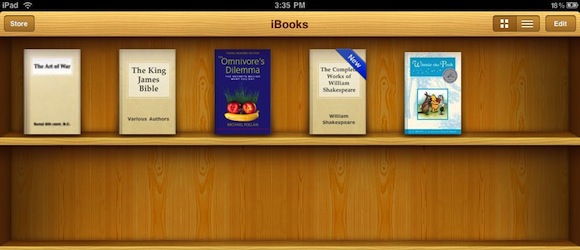Apple Found Guilty of eBook Price Fixing; Amazon Cackles, Twirls Moustache
Insidery

I can’t blame you if you haven’t been following the Department of Justice’s suit against Apple and (originally) five other book publishers for price fixing in the eBook market. It’s kind of arcane and weird, but it’s an arcane and weird thing that may affect the entire electronic book market, and if you’re the kind of book reader who looks at gamers flipping out about DRM that places unreasonable requirements on the user and thinks “there but for the grace of God go I,” you might want to pay attention. Just in case.
See, back in April of last year, the DOJ announced that it was leveling an anti-trust suit against Apple, Simon and Schuster, Hachette Book Group, the Penguin Group, Macmillan, and HarperCollins for price fixing. The same day that the DOJ announced its suit, Amazon.com, the 1k pound gorilla of the eBook market and the biggest eBook publisher not named in the suit, immediately lowered its eBook pricing by up to one third. With 60% of the eReader market using their Kindles, Amazon can afford to set prices very low (lower than some publishers feel is in their best interests), and has attempted to intimidate smaller publishers who want to keep their prices higher by pulling their books from Kindle shelves. With formatting and DRM, this is very close to banning those books from 60% of eReaders in human hands. Apple, in response to arriving on the eReader scene after Amazon had already established its dominance, takes 30% off the top any eBook sales through iBooks, and requires any publisher they work with to never sell an eBook elsewhere for less than the price it is sold for on iBooks. Both of these are attempts to create prices based on something other than immediate, per-book profitability. Both of them at odds with each other and bad for physical book sellers. But Apple’s the one in trouble with the DOJ.
So the DOJ announced its lawsuit, Amazon lowered its prices precipitously, Target (after making a deal to put tiny Apple stores in their locations) stopped selling Kindles at retail, and five of the accused publishers in the DOJ’s suit settled, leaving Apple as the sole battling defendant. Now, the DOJ has pronounced Apple guilty. From Reuters:
Steve Berman, a partner at Hagens Berman Sobol Shapiro pursuing consumer class-action litigation against Apple, called Cote’s decision “a very big deal.”
“It exposes Apple to hundreds of millions of dollars in damages, which is what we’ll ask for,” Berman said.
Apple responded through spokesman Tom Neumayr:
Apple did not conspire to fix e-book pricing. When we introduced the iBookstore in 2010, we gave customers more choice, injecting much needed innovation and competition into the market, breaking Amazon’s monopolistic grip on the publishing industry. We’ve done nothing wrong.
eReaders certainly haven’t reached the video game industry’s levels of “console exclusivity,” and I hope they never do. But one thing that would certainly head that off at the pass would be universal eBook formatting, which would decouple the “what eReader should I buy” question from the “who offers the best price on eBooks” one, which would probably be healthier for both the eReader and eBook market.
(via TechCrunch.)
Have a tip we should know? [email protected]